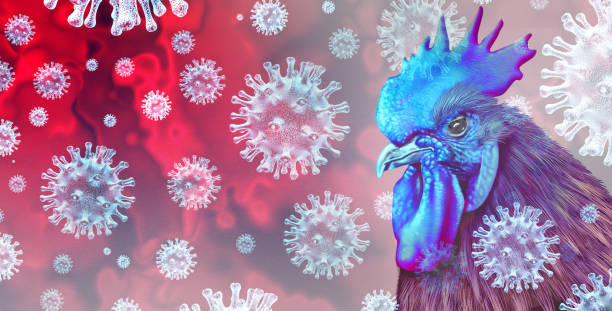The first human death from bird flu has been recorded in the US, amid concerns that the virus could become more transmissible among people.
The patient, who was over 65 and had underlying health conditions, was hospitalized in mid-December with the country’s first severe case of H5N1 avian influenza, which has been spreading mostly among farm workers since last year.
The patient contracted H5N1 in Louisiana after being exposed to both “backyard flock” and wild birds, according to the state health department.
The Louisiana agency said the patient did not spread the virus to anyone else, and that the risk of contracting H5N1 remains low for the general public but is higher for people who are exposed to birds, poultry, or cows.
“While tragic, a death from H5N1 bird flu in the United States is not unexpected because of the known potential for infection with these viruses to cause severe illness and death,” the US Centers for Disease Control and Prevention (CDC) said.
‘Animal-human exposures’
H5N1 is widespread in birds globally, but it’s uncommon for humans to become infected and it typically only spreads to people who are exposed to an infected animal.
“As with the case in Louisiana, most H5 bird flu infections are related to animal-to-human exposures,” the CDC said.
The US has had 66 confirmed cases of bird flu among humans since early 2024 when it was detected on livestock farms.
Sixteen states have reported bird flu outbreaks in dairy cows, with 917 herds affected.
Only two infected people in the US did not have a known exposure to animals: a patient who recovered after being hospitalized in Missouri and a child in California who had mild symptoms.
However, sustained spread among animals raises the risk that people will be exposed to the virus, potentially resulting in a larger outbreak that could have consequences beyond the US.
Samples of the virus that were taken from the Louisiana patient also indicate that it has mutated in ways that raised fears it could become more transmissible among people.
Last week, the Biden administration said it would allocate $306 million to the H5N1 public health response, including disease surveillance and lab testing.
It previously announced it would begin testing samples of unpasteurized milk in a bid to prevent the spread of the virus.











